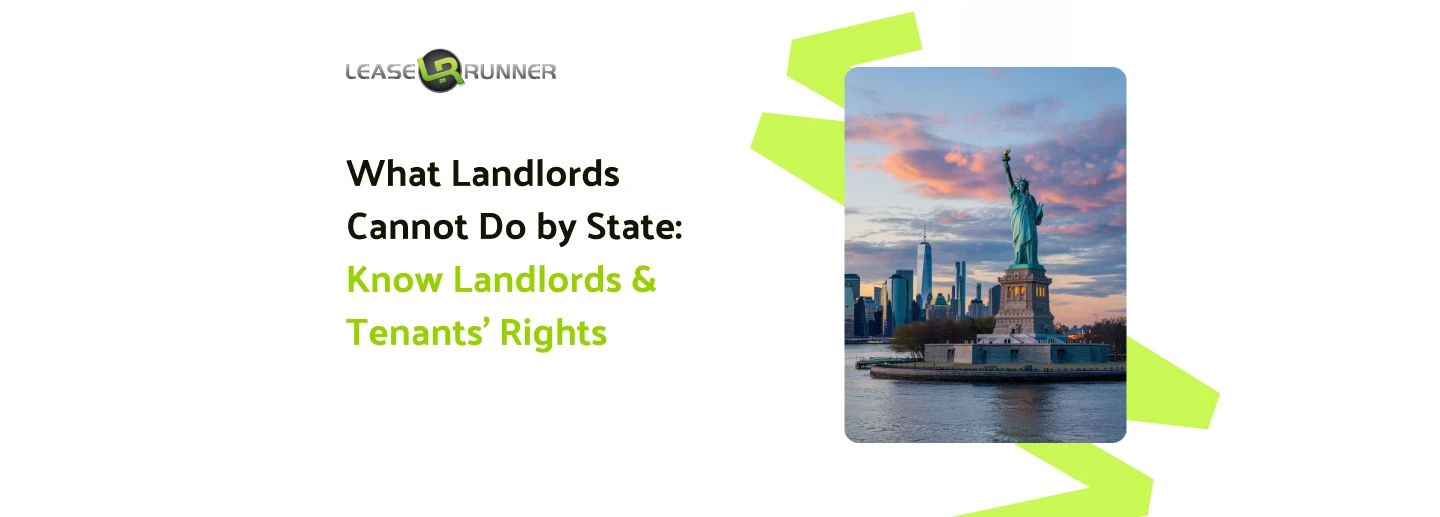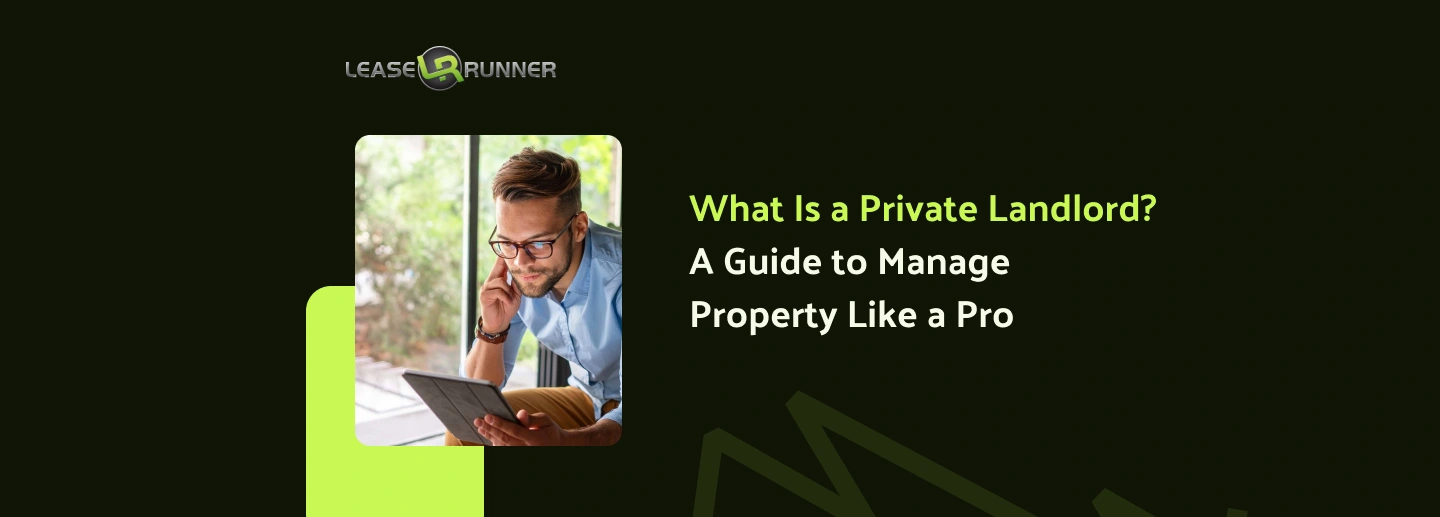To provide a harmonic living environment and to prevent any legal conflicts, both sides depend on a clear and legally valid landlord-tenant relationship. Particularly, landlords have to be aware of legal acts or know what a landlord cannot do in order to uphold tenant rights and maintain compliance with housing rules.
The ten important activities what a landlord cannot do are described in this comprehensive article, which also offers best practices for each and an extensive FAQ section to answer common questions. Scroll down for more information now!

Quick Facts Tables Regarding Some Most Common Problems and What a Landlord Cannot Do (or Should Remember)
An Overview of Landlord-Tenant Laws
Renting a home works best when both sides know the rules. Landlord-tenant laws set limits on what landlords can’t legally do and list clear duties for tenants. These rules cover repairs, privacy, rent, and tenant protections. By following them, landlords avoid illegal acts for a property owner, and tenants gain safe, fair housing.
Rights and Responsibilities
Every rental agreement comes with a set of rights and responsibilities for both the landlord and the tenant. These are often outlined in the lease but are ultimately governed by state and federal laws that protect against unfair practices.
- Landlord’s rights: Landlords may collect rent on time and enforce lease terms, like a no-pets clause. They can also use eviction laws if tenants break serious rules. Inspections are allowed, but unlawful entry without the 24-hour notice requirement counts as a prohibited action by landlords.
- Landlord’s responsibilities: Owners must follow the landlord's maintenance obligations and keep the unit safe. They must fix plumbing, heat, or wiring within a fair period. If they fail, this breaks tenant protections. A guide on repair timelines explains how long landlords have to act.
Deposits are also regulated. Withholding security deposit funds for normal wear or making unlawful rent increases goes beyond the landlord's legal boundaries.
- Tenant’s rights: Renters must be free from landlord harassment laws, like unfair rent hikes or threats. The law also bans Section 8 voucher discrimination, explained in guides on screening Section 8 tenants. Tenants also have rights to safe housing and protection against prohibited landlord actions, such as cutting heat or power.
- Tenant’s responsibilities: Tenants must pay rent on time, keep the place clean, and follow lease rules. They should also allow proper inspections. To avoid conflict, renters can read inspection rights guides, which show what landlords may check without crossing landlord legal restrictions.
Key Legal Aspects
Beyond the day-to-day rights and duties, several core legal principles define the landlord-tenant relationship and prevent illegal acts by a property owner. Understanding these key legal aspects is crucial for both parties.
- Lease agreements: A lease states how much rent is due, when to pay, and which rules apply. Clear leases protect both sides from disputes and mark landlord no-go zones. States may set unique terms, found in local rental law references, which explain forbidden landlord activities and restrictions on landlord behaviour.
- Eviction process: A landlord cannot change locks or cut utilities, since these are unlawful practices for landlords. Courts control the process. Before renting, many owners check a tenant’s eviction history. This helps avoid problems while respecting tenant protections.
- Security deposits: Under security deposit laws, landlords may only charge for real damage. They cannot keep funds for normal wear. They must return deposits quickly and list any deductions. Guides such as Florida landlord rules explain prohibited actions by landlords, like unlawful rent increases or withholding security deposit money.
What a Landlord Cannot Do to Avoid Conflicts?
Renting is a two-way street. Landlords provide housing, and tenants pay for that housing under agreed terms. To keep the process fair, the law defines tenant rights and landlord responsibilities. It also restricts unlawful practices for landlords and protects tenants from abuse.
Understanding what landlords legally can’t do is essential for both sides. Some owners may think they hold full control over their property. Yet once a rental agreement begins, strict rules apply. Tenants can challenge illegal landlord actions in court, and landlords who cross their legal boundaries risk fines, lawsuits, or even losing the right to rent units.
The sections that follow review the top ten landlord no-go zones. Each rule comes with examples and advice to prevent conflicts.
Privacy Violations
Respect for privacy sits at the heart of tenant protections. Tenants rent living space, not open access for landlords.
- Unauthorized entry: Every state has a form of unlawful entry/notice requirement (24 hours). This means landlords must give written notice, usually at least 24 hours, before entering. For example, entering a rental while the tenant is at work without notice is a clear case of illegal acts for a property owner.
Courts often interpret even “quick checks” as forbidden landlord activities, unless there is an emergency like fire or flood.
- Harassment: Harassment often comes in subtle forms. Examples include late-night calls, sitting in the parking lot to monitor tenants, or entering several times a week for vague “checks.” These actions cross into prohibited actions by landlords. Harassment destroys trust and can lead to legal action under landlord harassment laws.
Example: In many cases, both Tennessee and California require landlords to provide at least 24 hours of written notice before entering a rental property for non-emergency reasons. Failure to do so can be considered a violation of a tenant's right to privacy and may lead to legal action, including potential lawsuits for harassment or trespassing..
Advice: Keep all inspections scheduled and documented. Emergencies are the only exception. For all other reasons, landlords should knock, announce clearly, and provide advance notice in writing or by email.
Illegal Evictions
Evictions remain one of the most common disputes. The law requires a specific process under state eviction laws. Shortcuts are not allowed.
Self-Help Eviction
A self-help eviction is a typical type of illegal eviction. A landlord is accused of performing a self-help eviction when they are attempting to force tenants out without involving the courts.
This may include changing locks, threatening removal, or cutting off mail access. Here are some clearer explanations of those illegal actions for you:
- Changing the Locks: Unlawfully changing locks to prevent a tenant's access is a strict prohibition. This is often used to punish tenants for late rent, but Texas, Tennessee, and California have strong legal restrictions against it. Landlords must provide new keys immediately if permitted by the lease and should never use lock changes as retaliation.
- Shutting Off Utilities: Denying essential services like water or electricity is a clear violation of a tenant's right to habitable living conditions. This is a form of harassment and is considered an illegal landlord action in Texas, Tennessee, and California, with fines for violations. Landlords should not cut off utilities to coerce tenants.
- Removing Belongings: Landlords cannot remove a tenant's personal property before a legal, court-ordered eviction. This is a prohibited action in Texas. Tennessee and California laws are specific, requiring landlords to provide notice and store items for a set number of days (e.g., California's 15 to 18 days ) before disposal.
Property owners who do the above-listed actions often end up paying damages for breaking tenant protections. Yet, landlords with well-screened tenants face far fewer eviction headaches. Using proper tools, like a tenant background screening service, reduces the risk of placing unreliable tenants who may fall behind in rent or damage units.
Unlawful lease termination
Unlawful lease termination can also be a form of illegal eviction. This occurs when a landlord attempts to end a tenancy prematurely without legal justification or following the proper notice procedures required by law.
For example, a landlord may try to evict a tenant for complaining about a maintenance issue or for a minor lease violation that does not warrant termination, which can be classified as a retaliatory eviction. These actions violate a tenant's right to occupy the property for the duration of the lease and can lead to significant legal penalties for the landlord.
Advice: Follow the timeline for notices as set by local law. Courts handle the final step of removing tenants. Avoid shortcuts, because they create larger problems than they solve.

Discrimination and Retaliation
The Fair Housing Act and state laws ban discrimination. They also prevent punishment when tenants use their rights.
- Housing discrimination: Denying tenants due to race, family status, or religion is one of the oldest known illegal acts for a property owner.
- Service animals: Federal rules require landlords to allow service or emotional support animals, even if a lease has a no pets clause. Refusal here counts as one of the core actions landlords are not allowed to take.
- Retaliation: A landlord cannot retaliate against tenants for protected actions, like reporting unsafe conditions. This includes raising rent, decreasing services, or threatening eviction. For example, Texas and Tennessee explicitly prohibit retaliatory rent hikes and threats.
California's expansive anti-retaliation laws protect tenants who organise or request accommodations, and also prohibit landlords from decreasing services to pressure tenants into moving.
Advice: Screen tenants with credit or rental history checks, but avoid questions related to race, religion, or disability. Keep all decisions tied directly to rental qualifications.
Unlawful Use of Security Deposits
Security deposit laws protect tenant money. They limit what landlords legally can’t do with deposits.
- Excessive deposit: Asking for three or four months upfront exceeds the landlord's legal restrictions in most states.
- Charging for normal wear and tear: Small marks on paint or slight carpet fading are not valid charges. Billing tenants for them is an unlawful practice for landlords.
- Withholding security deposit: Some owners fail to return deposits at all. This counts as one of the most common illegal landlord actions.
- Penalty for wrongful withholding: Many states penalise landlords up to triple the deposit if funds are kept unlawfully.
Texas requires landlords to return security deposits within 30 days with an itemised list of deductions. Tennessee offers a similar 30-day return window, and failure to comply constitutes a forbidden landlord action. California laws demand deposit returns within 21 days and disallow charges for normal wear, imposing penalties for wrongful withholding.
Advice: Inspect the unit carefully before and after. Provide a clear itemised list to the tenant with receipts. Return deposits within the legal period, even if deductions occur.
Failure to Maintain a Habitable Property
Every state requires properties to be habitable. This includes safe plumbing, working heat, and a secure structure. Landlords' maintenance obligations form part of the landlord's responsibilities.
- Examples: No running water, pest infestations, mould, or unsafe wiring are all illegal landlord actions. Tenants can often break leases without penalty if habitability fails. Some can even repair issues themselves and deduct costs, if the law allows.
- Neglect: Ignoring requests qualifies as one of the prohibited actions by landlords. Courts treat non-repair as a serious breach of tenant protections.
Texas mandates landlords to repair conditions that materially affect health or safety. Tennessee law requires landlords to maintain properties in compliance with applicable building codes. California’s habitability laws are strict, obligating landlords to address repairs promptly or face legal consequences and possible rent reductions.
Advice: Prevent problems with regular maintenance checks. Quick responses reduce costs later and avoid legal disputes.
Landlords and tenants share the same goal: stable living arrangements. Yet fairness requires limits. From banning unlawful entry to stopping unlawful rent increases, the law defines what counts as a landlord's no-go zones.
Following these rules avoids financial loss and court cases. Tenants feel more secure with strong tenant protections, and landlords avoid claims of illegal acts for property owners. Respecting landlord legal restrictions is not just the law; it is also good business.
Conclusion
It is important for landlords to know and follow the rules if they want to keep a good relationship with their renters.
By avoiding the prohibited actions outlined above, related to what a landlord cannot do, and following best practices, landlords can prevent conflicts, ensure tenant satisfaction, and protect themselves from legal repercussions.
If you still have any concerns, feel free to visit our LeaseRunner blog and refer to our top-tier informative articles there.
FAQs
Q1. Can Landlords Come Unannounced?
No, they cannot. Except in case of an emergency, landlords usually have to give appropriate notice before visiting a tenant's residence. State-by-state variations exist in the necessary notice time; however, it usually runs 24 to 48 hours.
Q2. Can landlords enter your apartment?
Yes, they can. As mentioned above, landlords are usually obliged to give renters enough warning before entering a rental apartment.
Q3. When Should Landlords Give Keys?
New tenants often get keys at the start of their tenancy. Landlords are usually obligated to provide keys on the lease start date, allowing the tenant access to the property from that point forward. If a renter requests early access, both parties should negotiate conditions that may include prorated rent for the additional days.
Q4. What Is Illegal For Landlords To Do?
Landlords must follow the renting regulations protecting tenant rights. Illegal activities include entering without notice (unless in emergencies), discriminatory acts (based on race, colour, religion, sex, family status, etc.), retribution for legal action, withholding critical services, changing locks without notice, and failing to make required repairs.
Tenants should record infractions and seek legal counsel once they detect any signals of the behaviour above.
Q5. Can a landlord enter without permission in Texas?
No. While Texas law does not specify a fixed prior notice period, landlords generally must provide reasonable notice before entering a rental. Entering without tenant's permission or notice, except in emergencies, is considered an unlawful entry and violates tenant rights.
Q6. Is Tennessee landlord-friendly?
No. Tennessee law tends to favour tenants more than landlords. While eviction procedures are clear, landlords must follow strict rules on entry, notice, and maintaining habitable properties, making the state more tenant-protective than landlord-friendly.
Q7. What is considered landlord harassment?
Landlord harassment includes repeated unauthorized entries, threats of eviction without cause, shutting off utilities to force tenants out, persistent intimidation, and any behavior designed to pressure tenants to leave or give up rights. Such actions violate tenant protections and are illegal.








